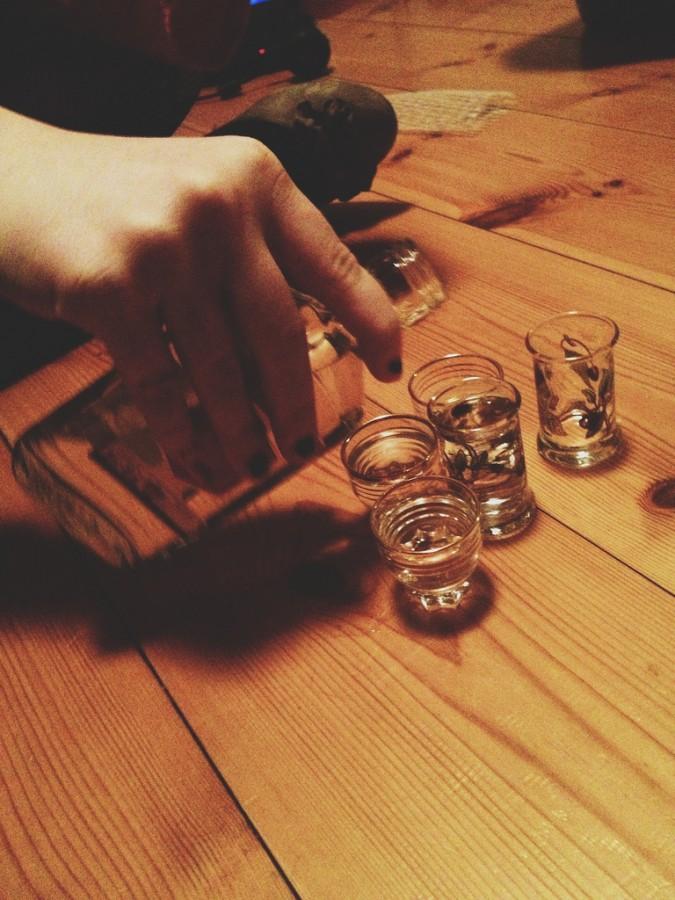Bottoms up, drinking age down
October 6, 2014
This article was a proud product of a glass of whiskey and an underage drinker.
There are two milestones in life that are worth celebrating: the eighteenth birthday, where consensual sex, advanced legal penalties, and cigarettes are bestowed as unalienable rights. The other would be the twenty-first birthday. Why? Because now limitless seas of beer, wine and liquor may be purchased and consumed, legally.
There may once have been a land in which everyone waited until their 21st birthday to have even a sip of poisonous punch or pound back a beer, but if it ever existed, that land is certainly not the United States of America.
Underage drinking is not only common, it is an unstoppable force. High school kids and college students alike drink. This is not a generalization saying that each and every person under the age of 21 consumes alcohol; however there is an undying faction of partiers and dignified drinkers within this demographic. It would seem illogical that breaking a law such as this would be so commonplace, but that only attests to its utter irrelevance.
Throughout the world the United States is on a very short list of nations with a legal drinking age above twenty-one. Of the 195 countries in the world, the United States is one of seven nations that prohibits drinking until the age of 21. The most noteworthy of those seven would be Pakistan, Indonesia, and glorious Kazakhstan. Indonesia, one the most religious nations in the world, and Kazakhstan, the home of Borat. These countries are excellent in their own regard, however it is rare that the United States is aligned with their moral legislation.
Conversely, one of the world’s leading superpowers and most thriving economy has a drinking age of 16. The wonderful nation of Germany rose above their fascist past to thrive in nearly every way imaginable. As fascism falls, so does the drinking age. The U.S. is by no means fascist, so why is its drinking age so advanced?
The reality is the advanced status of the United States is not represented by its drinking age. 16 would be a drastic shift and particularly unsafe combined with young drivers. However eighteen would not be such a drastic leap.
If the drinking age were lowered to 18, underage drinking would remain a norm. There is no misperception in that regard, however what could blossom from this would be earlier dialogue between young drinkers and their parents. This could result in safer teen drinking or perhaps a culture more embracing of alcohol.
In total, those under the age of 21 are allowed to be tried in court as adults, purchase lethal firearms, and risk their lives in military service. Imagine the infinitely dangerous potential of these liberties in comparison to alcohol. It is illogical and arguably immoral to deny young adults this liberty.
Fortunately for the youth, this law will never be an insurmountable wall, teens will drink, and teens will get caught. Drinks will continue to pour in basements crowded with high school students; just as college underclassman will continue to attend parties with near limitless alcohol. It is only a matter of time before the legislature regarding the drinking age aligns with the reality of American drinking culture.
Ross Passeck
@LinfieldReviewOpinion

